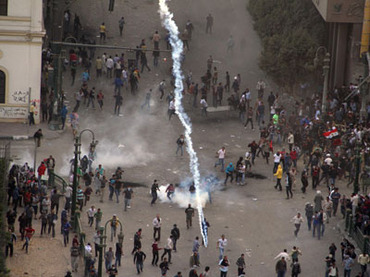By Serge Daniel / AFP
BAMAKO: Mali’s junta faced mounting military and diplomatic pressure Monday as West African states mulled sanctions and Tuareg rebels extended their grip on the north after seizing the city of Timbuktu.
Low-ranking officers ousted the government on March 22 on the grounds that the army was failing to quash the insurgency but the power vacuum has allowed the Tuareg to capture key towns virtually unopposed.
As fabled Timbuktu fell on Sunday and the bow-tie shaped nation appeared split in two by the Tuareg juggernaut, time ran out for the junta on a 72-hour deadline set by its neighbours to restore democracy or face heavy sanctions.
The 15-state Economic Community of West African States was to hold a fresh summit in Dakar Monday and make a decision on whether to close their borders to Mali and cut it off from the regional central bank.
The junta on Sunday announced various compromises in a bid to stave off these sanctions which could bring the landlocked nation to its knees.
Coup leader Captain Amadou Sanogo declared Mali’s constitution “restored” and announced the reinstatement of state institutions, promising elections in which the junta would not take part.
But, the man who led a band of renegade soldiers who
overthrew the regime barely six weeks before a presidential election told AFP the junta was “not going anywhere”.
With a disorganized junta struggling to assert its authority and former tourist hubs such as Timbuktu under the control of Islamist-backed rebels, Paris advised French nationals to leave.
“Given the instability of the security situation currently prevailing in the country, notably in Bamako, it is recommended that our compatriots whose presence is not essential temporarily leave the country,” a foreign ministry statement said.
The former colonial power, which has around 5,000 nationals in Mali, has led unanimous international calls for the junta to hand power back to President Amadou Toumani Toure, who was due to step down after April polls.
ECOWAS’ current chairman, Ivorian President Alassane Ouattara, said Sunday he was also worried that Mali was on the brink of being split in two.
“We are attached to Mali’s territorial integrity. We will do what it takes to stop this rebellion and ensure Mali’s territorial integrity is restored. It is the sub-region’s duty,” he said.
On Sunday, Tuareg rebels who in mid-January launched a fresh offensive in their decades-old struggle for an independent homeland in Mali’s northern triangle, eased into Timbuktu, facing little or no resistance.
The fabled trading hub — a United Nations world heritage site nicknamed the “pearl of the desert” — was the last major town in Mali’s north not to have fallen into rebel hands.
Announcing the “end of Malian occupation”, the MNLA (Azawad National Liberation Movement) said in a statement it would ensure “order and administration”.
On Sunday, witnesses told AFP they heard heavy weaponry blasting Timbuktu’s military base.
“The treasury, the banks, police stations, the office of the governorate and even the hospital have been pillaged,” said the head of the local branch of a bank.
The MNLA has been joined by the Islamist Ansar Dine (Defenders of Faith, in Arabic) which is headed by renowned Tuareg rebel Iyad Ag Ghaly and has ties to Al-Qaeda’s North Africa branch, known as Al-Qaeda in the Islamic Maghreb.
Another Qaeda-related group, the Movement for Unity and
Jihad in West Africa (Mujao), has said it too took part in the fight for Gao, another major northern town.
Following the coup, the European Union, the United States and other Western powers suspended hundreds of millions of dollars (Euros) of support for landlocked Mali — except for emergency aid to drought-hit regions.
More than 200,000 people have been forced from their homes by the fighting and aid groups have warned that the combination of civil war and drought could lead to one of the continent’s worst humanitarian emergencies.
